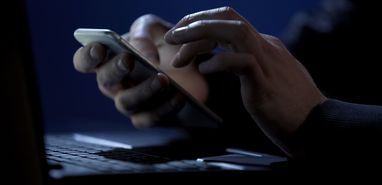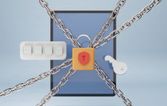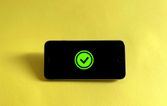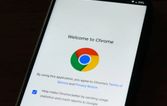
“You should be worried about your cyber-security”: You’ve heard it a thousand times before. From your bank account to your smart fridge, we’ve all been told that cyber-security is important.
We all know the usual advice: Use a complex password, use a VPN on public Wi-Fi, use two-factor authentication, etc. Don’t get me wrong, cyber-security is important, and you absolutely should take steps to avoid being a victim of cyber-crime, but how can you actually tell when your accounts have been hacked?
E-mail account attacks
For emails, you can use a website like Have I Been Pwned to check if your account details have been breached. Just type in your email, and the site will check your email address against hundreds of millions of data entries, to see if any account details associated with that email have been leaked. You can scroll down the website to see every account of yours that may have been attacked.
While websites like Have I Been Pwned work most of the time, they are not the only ways of checking your account security. Being wary and vigilant goes a long way in preventing cyber-crime. Keep an eye out for unauthorised access or strange changes to accounts you own.
Social media attacks
Social media hacks are on the rise. Recent studies have shown that 600,000 Facebook accounts are unlawfully accessed each day. Luckily, social media account breaches are not as critical as those to important information like credit cards.
If your social media account has been breached, you will most likely be able to notice it, thanks to a strange activity like changes to your profile. If you do suspect anything fishy with your account, you should reset the password, as well as the that of any account sharing the same password.
Computer hacking
It can relatively be hard to tell if a computer has been hacked. Often, the ease of discovering a security breach depends on the nature of the hack. If your computer has been infected with adware, it will be very easy to tell, because the adverts displayed on your computer will be obvious, and most often, intrusive.
Harder breaches to detect are ones which do not depend on user interaction. Worms and viruses which log personal data are a perfect example of this. If your computer has been infected with keylogging software, it will be relatively hard to detect. Most people sadly won’t find out about a keylogger or spyware software until the damage is done, such as funds being withdrawn from a bank account. If you detect unauthorised access to your accounts, a spyware hack on your computer could be the cause. You should reset your computer and change your account details if this occurs.
Another covert type of malware is cryptocurrency mining software. This software will run in the background of your computer, using extra power to mine bitcoin for someone else.
The best way to detect and remove these types of hidden malware is to use antivirus software like Malwarebytes Anti-Malware or Windows Defender.
Phone hacking
In the past decade, phones have become a crucial part of everyday life. As a result, much more of our personal details are held on our handsets. This has led to our smartphones being a huge target for malicious hackers. According to Google, a recent attack on the Google Play Store may have affected up to 1.3 million devices.
The good news is that smartphones are more difficult to breach than computers, especially Apple-made handsets. As long as you download applications from reliable sources only, you are unlikely to be the victim of an attack. People who jailbreak, download pirating applications, or side-load software are much more likely to become victim to this type of cyber-crime.
The signs of phone hacking are much the same as with a regular computer. Adware and Ransomware can be easily discovered as said before, but other software like a spyware can be nearly impossible to find until it’s too late.
The main thing you should conclude from this article is that the best way to prevent cybercrime is to be vigilant. As long as you take steps to prevent malicious attacks, and look out for suspicious activity, you should be okay.
As the Internet-of-Things grows, and our reliance on computers develops, we are going to become increasingly victim to cyber-crime attacks. It is going to get harder and harder to prevent breaches of personal information, and it will be interesting to see what the tech giants can do to solve it.








Contributed by Ethan Le Sage
Updated on 23rd July 2020